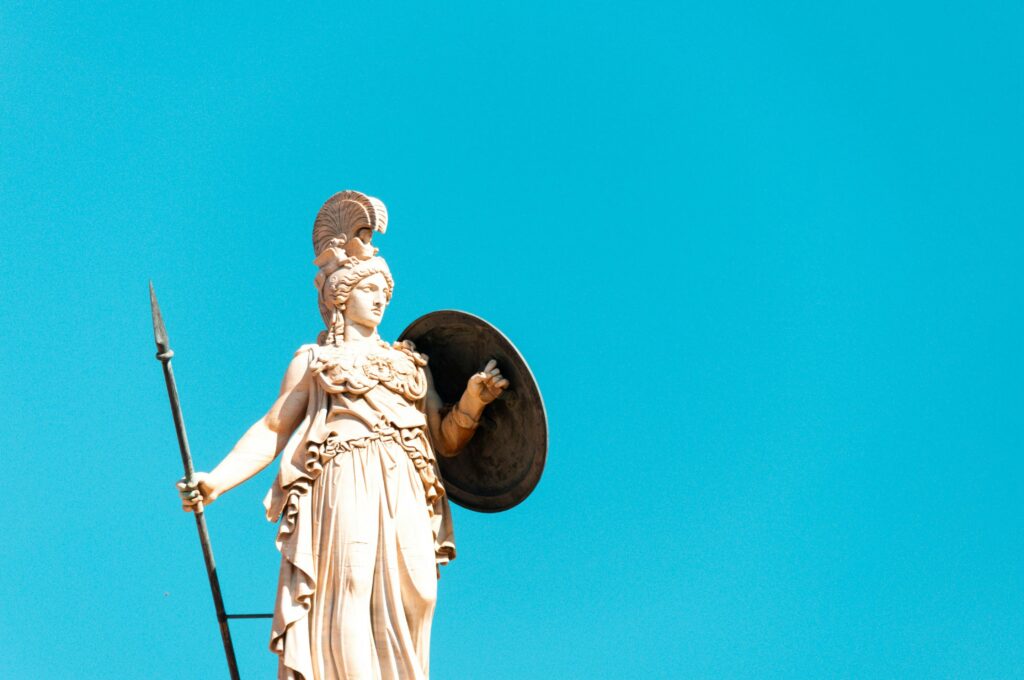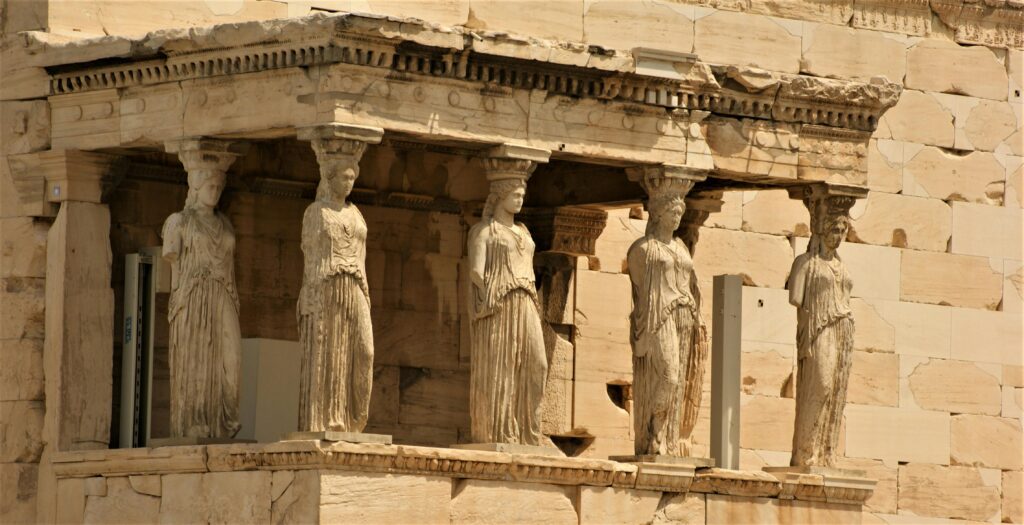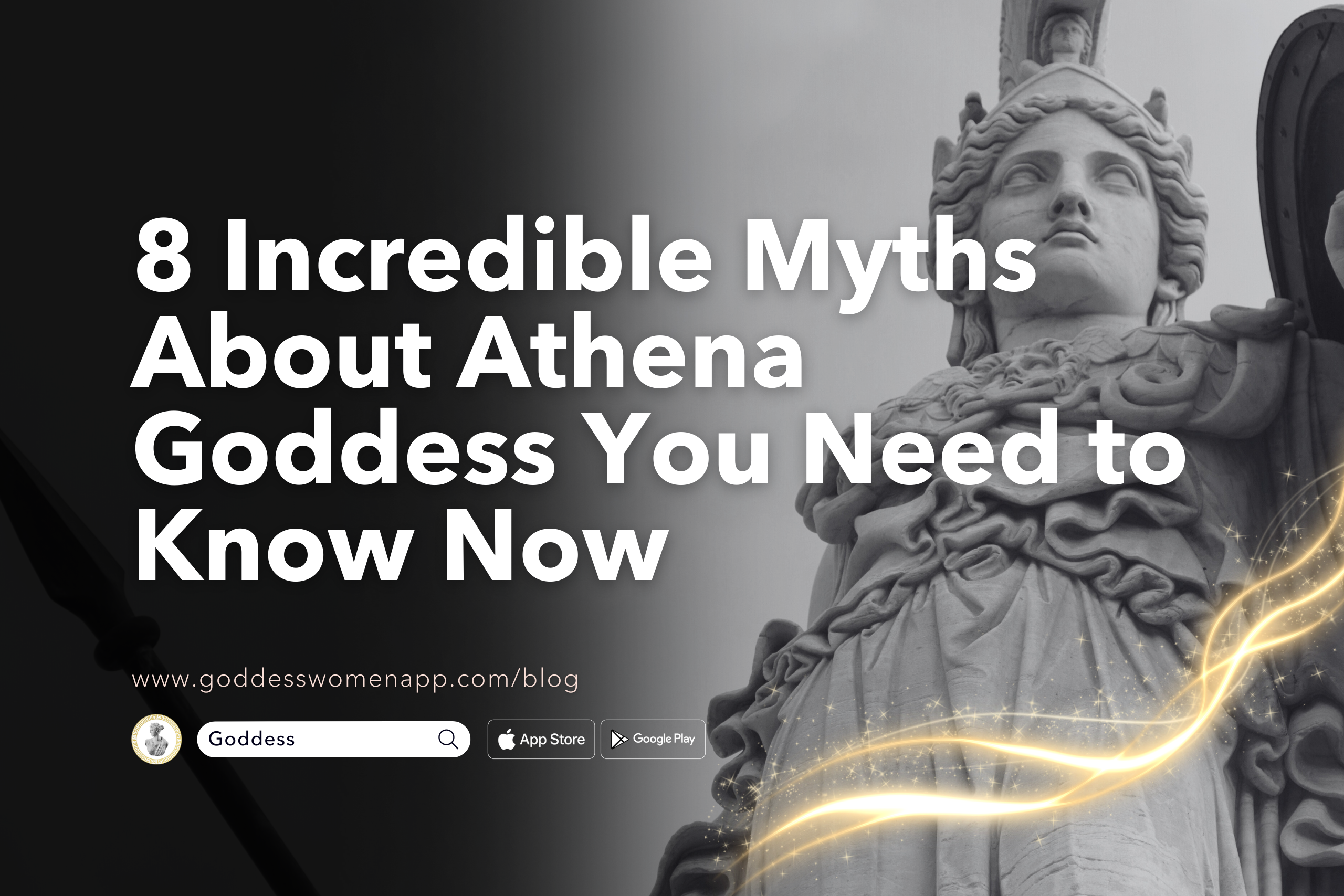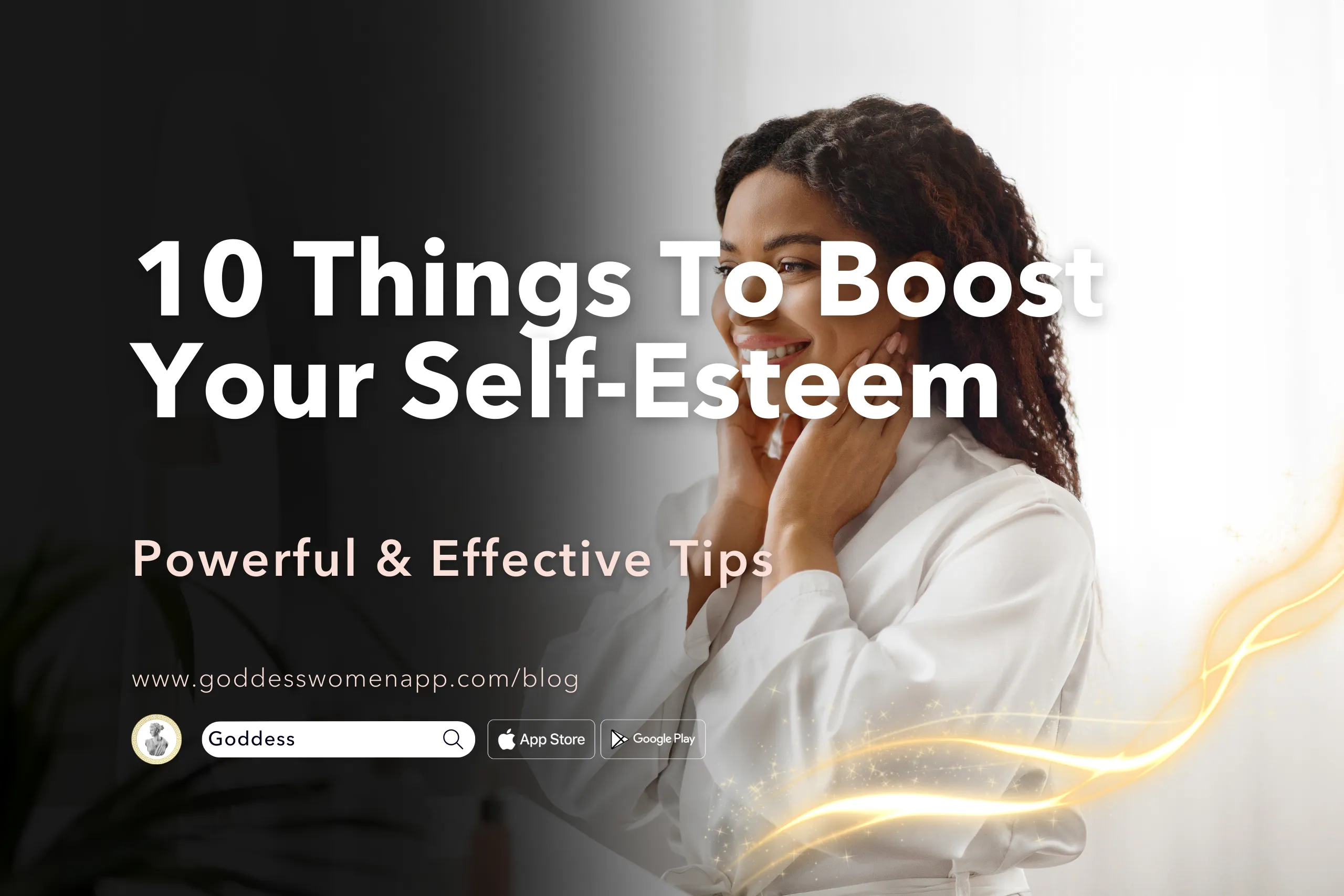Table of Contents
Introduction to Athena Goddess
Have you ever wondered about the divine forces that shaped the ancient world? Among the pantheon of Greek gods and goddesses, one figure stands out with unparalleled wisdom, courage, and strategic warfare skills. Yes, we’re talking about Athena, the goddess who embodies the perfect blend of intellect and might. In this blog post, “8 Incredible Myths About Athena Goddess You Need to Know Now,” we dive deep into the mythology of Athena, exploring tales that highlight her extraordinary birth, fierce battles, and wise judgments. Get ready to be amazed as we unravel the stories that showcase why Athena isn’t just another deity; she’s a symbol of empowerment, intelligence, and creativity that continues to inspire us today.

The Birth of Athena Goddess: No Mother, Just Zeus
In the realm of Greek mythology, where gods and goddesses love, fight, and weave the fate of humans, the birth of Athena stands as a testament to her unique nature and power. Unlike her Olympian siblings, Athena’s entrance into the world was anything but ordinary. Picture this: Zeus, the king of the gods, experiencing a headache of epic proportions. This was no ordinary headache, though; it was the precursor to one of the most astonishing events in mythological history.
The story goes that Zeus, after swallowing the pregnant Titaness Metis upon learning that their child would be mightier than him, began to experience unbearable pain. In a divine intervention, Hephaestus, the god of blacksmiths and craftsmen, struck Zeus’s head with an axe. From the split open skull of Zeus emerged Athena, fully grown and clad in armor, brandishing a spear and a shield. She let out a war cry that echoed through the heavens and the earth, announcing her arrival as a formidable deity.
This myth is symbolic on multiple levels. Athena’s birth from Zeus’s head, without a mother, signifies her as a deity of wisdom and strategic warfare, embodying the intellectual and rational aspect of Zeus. Her emergence, fully armed, highlights her role as a protector and warrior, ready to defend the gods and humanity from the get-go. It also underscores her virginity and independence, setting her apart as a self-sufficient and powerful goddess who needs no consort.
Athena’s unique birth story not only illustrates her might and wisdom but also reflects her importance in Greek mythology as a goddess who was revered for her intellect, strategic planning, and martial prowess. Stay tuned as we explore more myths that reveal the depths of Athena’s wisdom and the breadth of her power, painting a picture of a goddess whose influence extends beyond the ancient temples and into our lives today.
Goddess Athena and Poseidon: The Contest for Athens
In the heart of ancient Greece, a competition of divine proportions was about to unfold, one that would determine the fate of a fledgling city and its patron deity. This is the story of Athena and Poseidon, two powerful gods, vying for the honor of being the guardian over this burgeoning metropolis, which would come to be known as Athens.
The contest was simple: whoever could provide the city with the most useful gift would win the right to have the city named after them. Poseidon, the god of the sea, struck the earth with his trident, creating a spring. However, this was no ordinary water; it was as salty as the sea, reflecting his domain but, unfortunately, not very useful to the inhabitants.
Athena, on the other hand, approached the challenge with her characteristic wisdom. She planted an olive tree, a symbol of peace and prosperity. The olive tree provided the Athenians with wood, oil, and food, becoming an essential resource for the city’s growth and development. The gods judged Athena’s gift to be the more beneficial, and thus the city was named Athens in her honor, securing her place as its protector and patron goddess.
This myth symbolizes the values that Athena represents: wisdom, strategy, and the benefits of civilization. Unlike Poseidon’s display of raw power, Athena’s gift was thoughtful and multifaceted, offering sustenance, economic value, and peace. It’s a powerful reminder of the importance of foresight and the benefits of wisdom over brute strength.

The Weaving Contest: Goddess Athena vs. Arachne
Among the many myths surrounding Athena, the story of her contest with Arachne is perhaps the most telling about her personality and her domain. Arachne, a mortal woman, was renowned for her weaving skills, so much so that she dared to boast that her talent surpassed that of Athena herself, the goddess of crafts and wisdom.
Insulted, Athena challenged Arachne to a weaving contest to prove who was truly the superior weaver. Athena wove a tapestry depicting the gods in their glory, emphasizing their power and the consequences of hubris among mortals. Arachne’s tapestry, while breathtakingly beautiful, depicted scenes that mocked the gods and highlighted their flaws and misdeeds.
Despite the insult, it was clear that Arachne’s skill was unmatched, even by the goddess. However, instead of admitting defeat, Athena, in a fit of rage, destroyed Arachne’s tapestry and transformed her into a spider, condemning her to weave for eternity. This outcome serves as a cautionary tale about the dangers of pride and the importance of respecting the gods.
The myth of Athena and Arachne underscores Athena’s association with wisdom, crafts, and the arts, but it also reveals a darker side of the goddess, showcasing her fierce protection of her reputation and her punitive nature towards those who offend her. It’s a complex story that humanizes the divine, showing that even gods are not immune to feelings of jealousy and revenge.
These myths, rich in symbolism and moral lessons, reflect the nuanced character of Athena Goddess. Through them, we see the depth of her wisdom, her protective nature, and the respect she commands, but also the high standards she sets for mortals and deities alike.
Goddess Athena’s Role in the Trojan War
The Trojan War, a pivotal event in Greek mythology, showcases the gods’ deep involvement in human affairs, and Athena’s participation is especially noteworthy. As the goddess of wisdom and strategic warfare, Athena played a crucial role in the conflict, aligning herself with the Achaeans (Greeks) against the Trojans.
Athena’s support for the Greeks was unwavering and instrumental. She guided Achilles, the greatest of the Greek warriors, advising him in battle and protecting him from harm. In one of the war’s most critical moments, she descended to the battlefield to break the truce by tricking a Trojan archer into shooting an arrow at Menelaus, reigniting the conflict. Furthermore, Athena famously assisted Odysseus, a hero known for his cunning, in devising the plan of the Trojan Horse, leading to the fall of Troy.
This myth emphasizes Athena’s strategic mind and her role as a protector of heroes. Her involvement in the Trojan War illustrates her value of intelligence over brute strength and her commitment to supporting those she favored, demonstrating the strategic and often indirect ways in which the gods influenced human affairs.

The Aegis: Goddess Athena’s Shield
Among the symbols associated with Athena, the Aegis stands out. More than just a shield, the Aegis embodies Athena’s power to protect and intimidate. Traditionally, it is depicted as a breastplate or a shield made of goatskin, fringed with snakes, and featuring the head of the Gorgon, Medusa, whose gaze could turn onlookers to stone.
The Aegis represents not only physical protection but also the divine authority and invincibility of Athena. It was said that Zeus himself sometimes bore the Aegis in battle, underscoring its significance and power. In mythology, the mere sight of the Aegis could instill fear and disarray among Athena’s enemies, showcasing her strategic advantage in warfare.
This powerful artifact symbolizes the goddess’s protective nature, her role as a guardian of the city, and her ability to instill fear in the hearts of those who oppose her. The Aegis serves as a reminder of the complexity of Athena’s character—both a nurturer and a formidable opponent.
Mentorship of Heroes: Goddess Athena’s Proteges
Athena’s guidance and mentorship of heroes are central themes in her mythology, reflecting her roles as the goddess of wisdom, courage, and heroic endeavor. She is often depicted as a patron and protector of heroes, offering them aid in their quests and imparting crucial wisdom.
One of her most famous proteges was Odysseus, the hero of Homer’s “Odyssey.” Athena guided Odysseus through his long journey home from the Trojan War, offering him advice, disguising him when necessary, and ultimately helping him reclaim his throne and family in Ithaca. Her support for Odysseus underscores her appreciation for intelligence, cunning, and resilience.
Athena also mentored Perseus, aiding him in his quest to slay Medusa. She provided him with the shield (or sometimes attributed as the polished shield) to view Medusa’s reflection, avoiding her deadly gaze, and guiding his hand in the decisive moment. Through her intervention, Perseus succeeded in his seemingly impossible task, showcasing Athena’s role in facilitating heroic deeds through wisdom and strategic guidance.
These stories of mentorship highlight Athena’s investment in the success of her chosen heroes, her strategic approach to problem-solving, and her value of intellect and cunning over brute force. They illustrate her role as a guiding figure, shaping the destinies of those who seek her favor and exemplify the virtues she embodies.

Goddess Athena and the Olive Tree: Gift to Humanity
One of Athena’s most enduring gifts to humanity was the olive tree, a symbol of peace, prosperity, and resilience. This gift was part of her contest with Poseidon for the patronage of the city that would become Athens. While Poseidon offered a spring of salt water, Athena’s gift of the olive tree was far more valuable to the Athenians. It provided them with oil, food, and wood, becoming a cornerstone of their economy and daily life.
The olive tree stands as a testament to Athena’s wisdom and her benevolent guardianship over Athens and its people. It highlights her role as a deity not just of war but also of peace and prosperity. The olive branch, in particular, has become a universal symbol of peace, derived from Athena’s gift. This myth underscores the goddess’s multifaceted nature, embodying wisdom, nurturing, and the fostering of civilization.
Goddess Athena’s Virginity: The Parthenos
Athena’s status as a virgin goddess, or “Parthenos,” is a significant aspect of her mythology, reflecting her independence and power. Unlike many other deities in Greek mythology, Athena never marries nor engages in romantic relationships, instead dedicating herself entirely to her pursuits as a goddess of wisdom, warfare, and craftsmanship.
Her virginity symbolizes her autonomy and detachment from the domestic and romantic entanglements that often characterized the lives of other gods and goddesses. This aspect of her identity allowed her to be a unique figure among the Olympians, one who was wholly devoted to her roles without the influence or distraction of consort relationships. It also contributed to her worship as a protector of cities and a guardian of heroes, emphasizing her role as a self-sufficient and powerful figure.
Conclusion
Throughout the myths of Athena, we see a goddess who embodies wisdom, strength, and strategic warfare, yet also offers protection, mentorship, and invaluable gifts to humanity. Her stories are not just tales of divine intervention but are rich with symbolism and lessons that resonate to this day. Athena’s enduring legacy as a feminist icon, a patron of heroes, and a deity of wisdom and civilization highlights the complexity and depth of her character.
In exploring the multifaceted nature of Athena, we are reminded of the power of wisdom over brute force, the value of mentorship and guidance, and the importance of independence and strategic thinking. Athena’s myths encourage us to strive for a balance of strength and intelligence in our own lives, to seek wisdom in our decisions, and to nurture and protect those values and places dear to us.
As we reflect on the incredible myths of Athena Goddess and the virtues she embodies, it’s an opportunity to consider which aspects of her character resonate most with us. Are you inspired by her wisdom, her courage, or her commitment to justice and civilization? If you’re curious about how closely you align with the archetype of Athena, why not explore further? Take the archetype test on the Goddess app and discover if you embody the spirit of Athena. It’s a fun way to connect with the rich tapestry of mythology and perhaps learn something new about yourself in the process. Engage with the wisdom of Athena, and let her stories inspire you to reach your own heroic potential.





